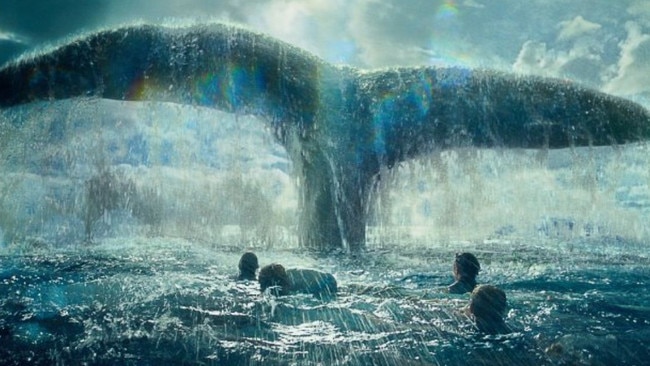Whales schooled one another in how to avoid harpoons
American whalers discovered within months of arriving in new waters it was much more difficult to catch the prey they sighted.

Sperm whales quickly got the measure of the whalers of the Moby Dick era and shared strategies to avoid their harpoons, a study suggests.
Researchers in Britain, Canada and the US trawled details of hundreds of voyages of American whalers in the North Pacific during the mid-19th century and discovered that, within months of arriving in new waters, whalers found it much more difficult to catch the prey they sighted.
During this period, American and European whalers operated from sail-powered ships and rowed out in open whaleboats once they sighted groups of sperm whales.
The team’s analysis revealed a 58 per cent fall in the strike rate within two to three years of the introduction of American whaling in a region. They said it was not plausible that any decline in the seamen’s competence was behind their dwindling success.
They concluded that whales learnt new behaviours to avoid being harpooned that must have been rapidly shared. While sperm whales are known for their intelligence, the team said the findings shone new light on their capacity to adapt to changing threats.
Luke Rendell, of the University of St Andrews, one of the study’s authors, said: “It does suggest there is the capacity for social learning on a much larger scale than anticipated.
“To have had this effect that quickly, it needs to have spread through a large part of the population in a (short) time.”
In the paper, published this week in the journal Biology Letters, the researchers stated: “The whalers wrote of defensive methods that they believed the whales were adopting, including communicating danger within the social group, fleeing, or attacking the whalers. Deep dives would also have been effective.”
The team said sperm whales could probably co-ordinate behaviour across several kilometres by sending and responding to high-frequency “clicks”.
They added that the pattern of matriarchal “social units” of a dozen whales coming together with other groups, before dispersing and later joining up with different groups, would have hastened the pace of learning.
They concluded that the analysis provides “substantial support” for rapid social learning over long distances, and within too short a timeframe to be explained by genetic evolution.
Dr Rendell said the whalers’ frustration was exemplified by Ishmael’s complaint in Moby Dick (1851): “The more whales seen, the fewer caught.”
The Times



To join the conversation, please log in. Don't have an account? Register
Join the conversation, you are commenting as Logout